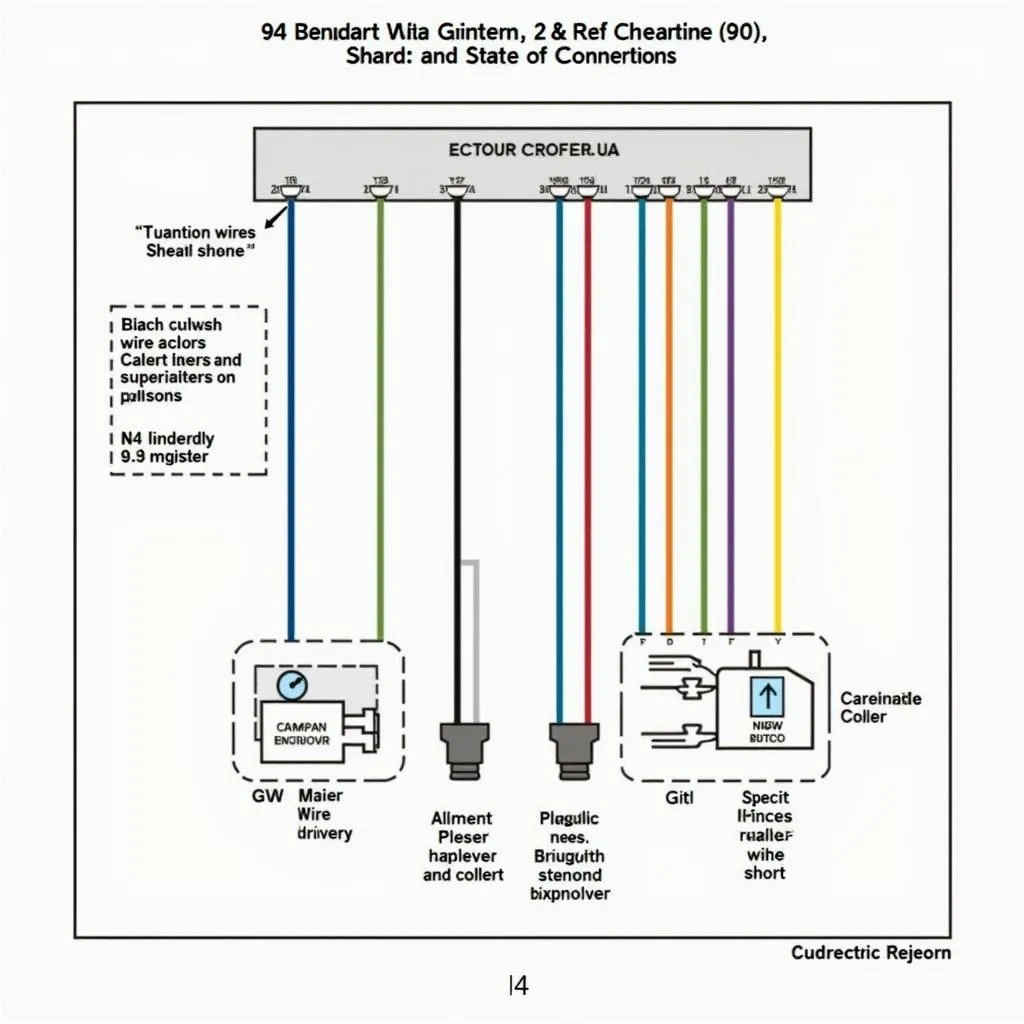Experiencing a problem starting your car can be incredibly frustrating, especially when you’re in a hurry. Whether it’s a clicking sound, a slow crank, or complete silence, understanding the potential causes and solutions can save you time, money, and a lot of headaches. This guide will walk you through the most common reasons for car starting problems and offer practical advice on troubleshooting and fixing them, even remotely.
One of the first things to check when you have a problem starting your car is the battery. A weak or dead battery is a frequent culprit. Bad battery vs starter can be tricky to distinguish, but some key signs point to the battery. Dim headlights, a slow cranking engine, or a clicking sound when you turn the key are all indicators of a potential battery issue. You can test your battery voltage using a multimeter. A reading below 12.6 volts typically indicates a low charge.
Common Causes of Car Starting Problems
Several issues can lead to a problem starting your car, ranging from simple fixes to more complex mechanical failures. Here’s a breakdown of the most common culprits:
Battery Issues
As mentioned earlier, a dead or dying battery is often the primary reason for starting problems. Battery bad or alternator is another common dilemma. A faulty alternator prevents the battery from recharging, eventually leading to a dead battery and a car that won’t start.
Starter Motor Malfunction
The starter motor is responsible for cranking the engine. If it’s faulty, the engine won’t turn over even with a good battery. A clicking sound is often a telltale sign of a bad starter.
Faulty Alternator
The alternator recharges the battery while the engine is running. A bad alternator won’t charge the battery, leading to starting problems down the line.
Ignition System Problems
The ignition system delivers the spark needed to ignite the fuel in the engine cylinders. A problem with the ignition switch, coil, or spark plugs can prevent the engine from starting.
Troubleshooting a Problem Starting Your Car
When facing a problem starting your car, a systematic approach to troubleshooting is key.
- Check the Battery: As the most common culprit, begin by checking your battery voltage.
- Inspect the Starter: Listen for a clicking sound when turning the key. This could indicate a bad starter.
- Examine the Alternator: Check the alternator belt for wear and tear. If the belt is broken, the alternator won’t charge the battery.
- Test the Ignition System: If the battery and starter are fine, the problem might lie within the ignition system.
Car starting problem with new battery can also occur. If you’ve recently replaced your battery and still experience starting issues, the problem likely lies elsewhere, such as the starter or alternator.
Remote Diagnostics and Software Solutions
Advances in automotive technology allow for remote diagnostics and software solutions to address certain car starting problems. These innovative solutions can often pinpoint the exact cause of the issue and sometimes even provide a fix without a physical visit to a mechanic.
“Remote diagnostics can significantly reduce the time and cost associated with traditional car repairs,” says automotive expert, John Smith, Lead Engineer at AutoTech Solutions.
Engine not cranking battery good suggests a problem beyond the battery, like a faulty starter motor. Identifying the root cause early on can prevent further damage and costly repairs.
Conclusion
A problem starting your car can be a significant inconvenience, but with the right knowledge and tools, you can often diagnose and resolve the issue. By following the troubleshooting steps outlined in this guide, and leveraging remote diagnostic solutions when available, you can get your car back on the road quickly and efficiently. Don’t let a problem starting your car ruin your day!
“Investing in remote diagnostic and programming services can empower car owners to take control of their vehicle’s health and maintenance,” adds Maria Garcia, Senior Technician at AutoDiagNow.
Battery vs alternator failure requires a proper understanding of the symptoms associated with each component. This allows for accurate diagnosis and targeted repair solutions, whether through traditional methods or remote software updates.

